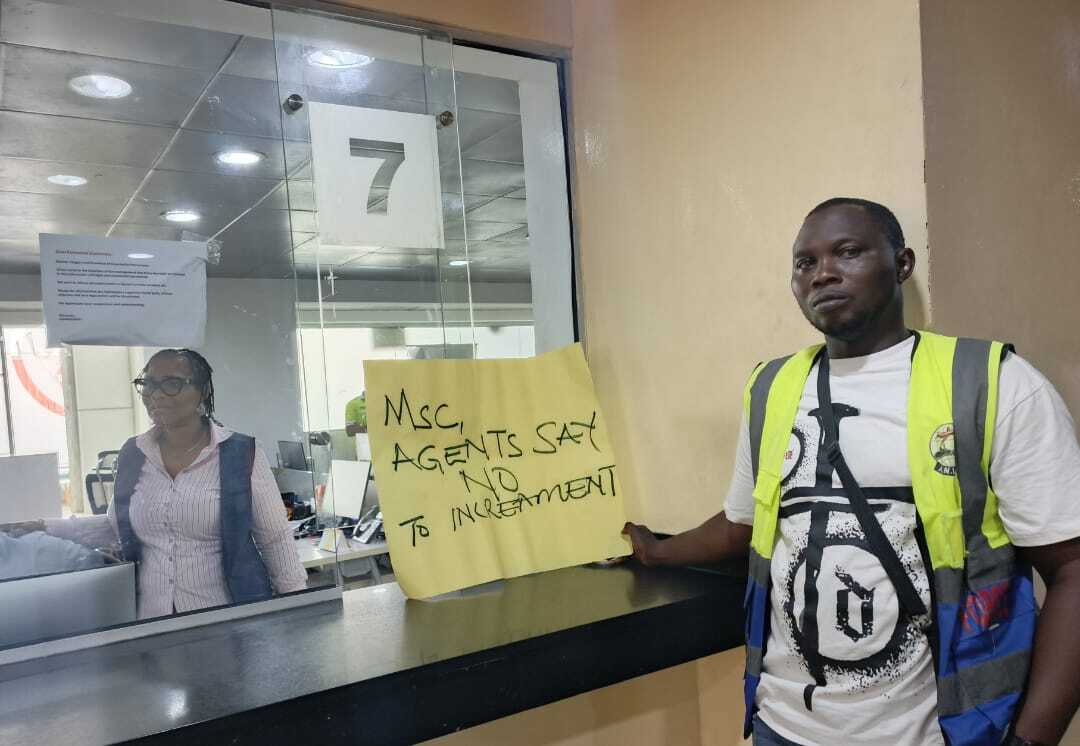Governor of the Central Bank of Nigeria (CBN), Mr Olayemi Cardoso, says the Bank will maintain its firm commitment to monetary stability as the foundation for inclusive and sustainable growth, insisting that credible reforms must be sequenced to deliver lasting confidence in the economy.
He made the remarks at London Business School’s Wheeler Institute for Business and Development during the “In Conversation with the Governor of the Central Bank of Nigeria” event held on Friday, 10 October 2025, supported by J.P. Morgan and Goldman Sachs. The dialogue, moderated by Professor Hélène Rey, Lord Bagri Professor of Economics, brought together investors, academics and policy leaders to explore Nigeria’s reform trajectory amid global financial uncertainty.
“We stayed with orthodox monetary policy, and the economy is responding,” Cardoso said. “Inflation has moderated, growth has climbed above four per cent, and we’re seeing early signs of macroeconomic stability after years of volatility.”
Opening the evening, Dr Nkiru Balonwu, an adviser to the Governor, said the London event was part of a new era of transparency at the Central Bank.
“Events like this reflect something central to the Governor’s leadership,” she said. “Transparency, open dialogue and learning between policymakers, academia and markets. Across the world, central banking is evolving, and Nigeria must be part of that evolution.”
“We stayed with orthodox monetary policy, and the economy is responding,” Cardoso told participants. “Inflation has moderated, growth has climbed above four per cent, and we’re seeing early signs of macroeconomic stability after years of volatility.”
Cardoso explained that the guiding philosophy of the Central Bank’s approach is sequencing, ensuring that stabilisation precedes expansion. “You cannot have inclusive growth without first restoring confidence in the fundamentals,” he said. “Stability is not the absence of change; it is the environment that allows productive change to occur.”
The Governor noted that when the current reforms began, Nigeria’s economy was struggling under a combination of exchange rate distortions, structural bottlenecks and eroded investor trust. The priority, he said, was to re-establish macro credibility by applying disciplined, data-driven monetary policy tools.
“The economy we met was one where confidence had eroded — in markets, in prices and even in data,” Cardoso told the audience. “The decision to return to orthodox policy was not ideological; it was practical. It was the only way to rebuild credibility.”
He acknowledged that stabilisation measures had been challenging for households and businesses but insisted they were yielding measurable results. “Reforms of this magnitude are never painless,” he said, “but without a stable base, even well-intentioned fiscal or social policies collapse under volatility.”
The Governor cited early indicators of progress: a narrowing exchange rate premium, improved liquidity in the FX market, easing inflation momentum and the return of investor inflows into fixed-income instruments. “Investors are watching for consistency,” he said. “Our focus is to sustain stability long enough for market confidence to harden into long-term investment decisions.”
When an impact investor in the audience asked about persistently high lending rates and limited access to credit for small businesses, Cardoso stressed that the monetary tightening cycle was transitional.
“Interest rates reflect inflation expectations,” he said. “As we bring inflation down and rebuild balance sheet confidence, rates will follow. What matters most is that credit, when it flows, is built on stability, not speculation.”
Cardoso also provided deeper insight into the bank recapitalisation programme, which he framed as an “investment in future resilience.” He said Nigerian banks must be equipped to finance large-scale projects in energy, manufacturing, infrastructure and technology — without compromising their balance sheets.
“We want stronger, better-capitalised banks writing bigger tickets for productive sectors,” he said. “This is about preparing for the scale of investment required in a trillion-dollar economy. It’s not about crisis; it’s about capacity.”
Mr Mayokun Ajibade, Special Adviser on Financial Markets and Economic Policy, echoed the Governor’s remarks, describing stability as “the quiet engine of confidence.”
“Fiscal and monetary coordination has improved markedly,” Ajibade said. “The reforms are not isolated. They’re synchronised — fiscal discipline, FX liberalisation and banking sector resilience all feed into the same macro story.”
Cardoso added that the Bank’s reform philosophy also prioritises predictability over short-term popularity, underscoring that stability must endure through election cycles and global shocks. “When markets can price Nigeria confidently, the rest follows,” he said. “Stability brings visibility, and visibility attracts investment.”
Audience members also raised questions on environmental sustainability and green finance. Cardoso said that as macro stability is restored, the CBN’s focus will increasingly shift to embedding ESG principles into regulation and credit allocation.
“The next phase of reform is not just about more capital,” he said. “It’s about capital that’s sustainable, inclusive and forward-looking — the kind that aligns with the global transition economy.”
Throughout the conversation, Cardoso repeatedly returned to the theme of trust, describing it as the currency of stability. “Economic recovery depends on confidence,” he said. “Confidence comes from consistency. That’s why our focus has been to stabilise prices, unify the FX market and create an environment where policy is predictable and transparent.”
As the event concluded, Professor Rey noted that Nigeria’s recent stabilisation efforts have attracted renewed international attention. “What’s remarkable,” she said, “is that the CBN has chosen clarity and communication over ambiguity — that is how confidence is rebuilt.”
Summing up his message to the audience of investors, scholars and policy leaders, Cardoso said:
“What we are building is not just a stable market — it’s a stable mindset. When people and businesses can plan with confidence, that’s when true growth begins.”
Bringing the evening to a close, Dr Victor Ugbem Oboh, Director of the Monetary Policy Department at the Central Bank of Nigeria, commended the Governor’s clarity of purpose and the coherence of the reform vision.
“The Governor has showcased bold and courageous reforms at the Central Bank over the last two years,” Dr Oboh said. “We are all witnessing how these policies are already laying the foundation for macroeconomic stability, institutional credibility and renewed confidence in Nigeria’s economy.”
He noted that the discussion at London Business School reflected the Bank’s new era of openness and accountability in communicating policy, emphasising that “the consistency of the message — stability before growth — has become the compass guiding monetary and fiscal coordination.”






